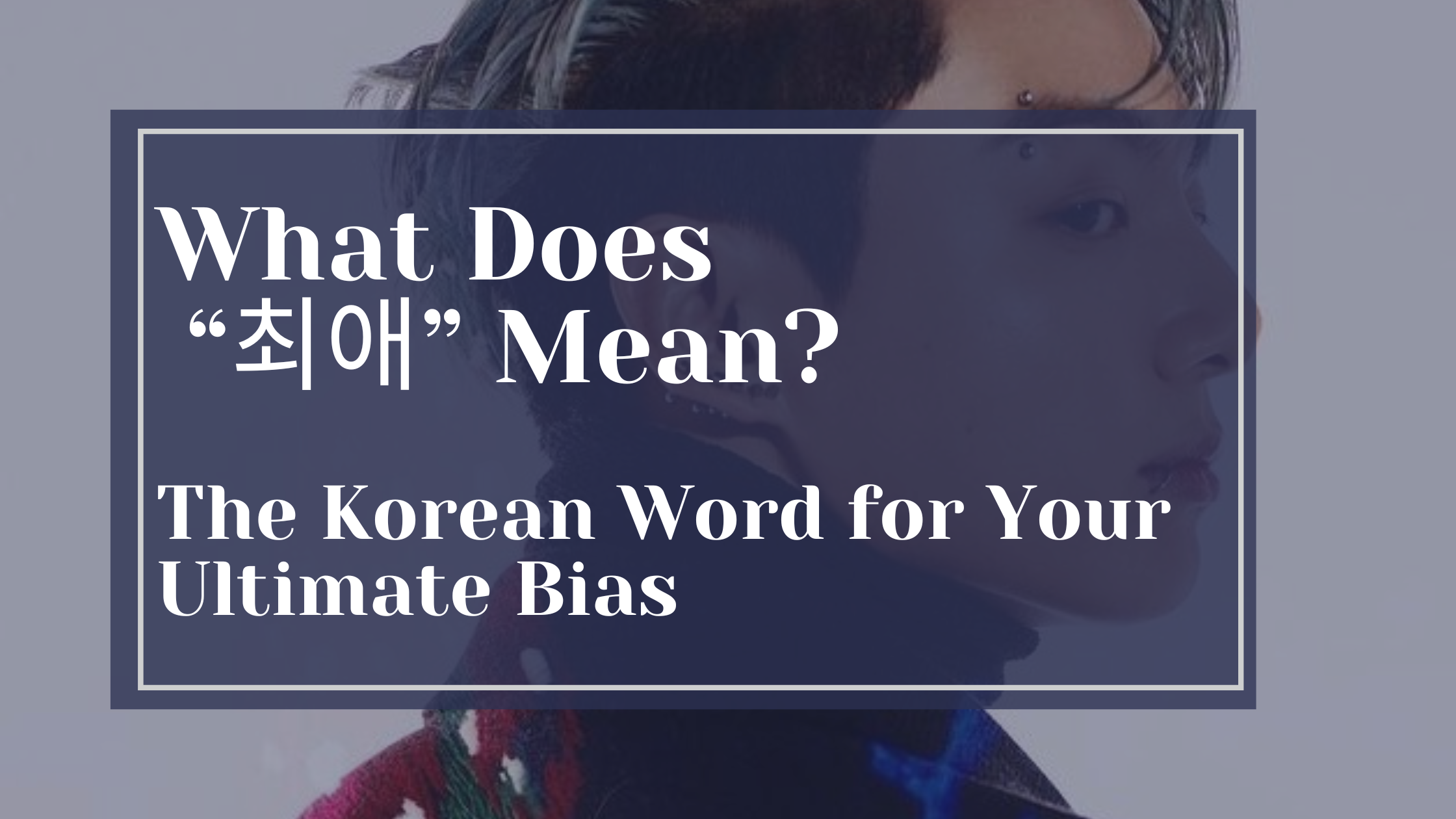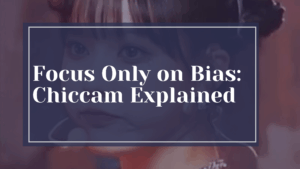Today, I’m going to introduce how to say “oshi / favorite member” in Korean.
When I went to a concert in Seoul for the first time, someone asked me during a photocard trade:
“최애(チェエ) who?” — and I completely froze.
I had studied Korean, but “최애” never appeared in my textbooks or vocabulary lists.
It’s one of those K-pop fandom words that you only learn from other fans.
So to save you from the same confusion, let’s learn the Korean word for “ultimate bias”:
최애 (choi-ae).
💌 Want more K-POP deep dives like this?
Subscribe to Hello Bias Letters, our free Substack newsletter!
Each week, we unpack K-POP culture with care—from fan behavior to behind-the-scenes stories.
→ Join us here
Meaning of “최애”
Written in Chinese characters, 最愛 (“the most beloved”)
Korean Hangul looks like a completely separate writing system,
but many words actually come from Chinese characters.
최애 is one of them:
- 최 (最) = “the most”
- 애 (愛) = “love”
So 최애 literally means “the one you love the most.”
“최애” means your ultimate bias
In K-pop, 최애 is not just “a bias.”
It refers to the one member you love above everyone else in the group.
“Bias” vs “최애”
Bias = your favorite member
“Bias” simply means a member you like.
You can have multiple biases in one group, or even be an OT7 / OT8 / all-fan.
최애 = the one you love the most / your top of the top
On the other hand, 최애 is your ultimate favorite.
While some fans might have more than one, the idea is that there is one person at the very top.
Some people have one 최애 per group, but often,
your 최애 is the member at the top of your entire stan list.
Example Sentences You Can Use
Here are easy and natural sentences you can use when talking about your favorite member.
I’ll include Korean, romanization, and English meaning so you can copy/paste them anywhere:
| Korean | Romanization | English Meaning |
|---|---|---|
| 내 최애는 ___야. | nae choi-ae neun ___ ya | My ultimate bias is ___. |
| 최애 누구야? | choi-ae nugu-ya? | Who’s your 최애? |
| 나 최애 바뀌었어… | na choi-ae bakwi-eosseo… | My 최애 changed… |
| 난 최애 못 정해. | nan choi-ae mot jeonghae | I can’t choose my choi-ae. |
| 최애랑 생일 같아! | choi-ae-rang saeng-il gata! | I share a birthday with my 최애! |
| 나 원래 올팬인데, 지금은 최애 있어. | na won-lae ol-paen-inde, ji-geum-eun choi-ae isseo. | I used to be an all-fan, but now I have a choi-ae. |
If you want to sound casual online:
→ Just type “chae-ae” or “choiae” in English spelling.
Fans will still understand it.
Summary and How to Identify Your “최애”
In K-pop fandom, both “bias” and “최애 (choi-ae)” are commonly used terms, but they carry slightly different nuances.
“Bias” refers to any member you like, while “최애” refers to the one you like the most among them.
It can be confusing at first, especially if you’re new to Korean.
However, once you see these words used in conversations and on social media, the difference becomes more natural.
To start, think about the member you tend to watch the most without realizing it.
That person is your 최애.
💬 If you found this post helpful, consider supporting me with a coffee!
Your support keeps Hello Bias going ☕💛
👉 Buy Me a Coffee








